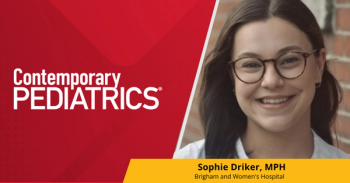
Behavioral Disorders More Common in Adopted Teens
Adolescents who were adopted as infants have twice the risk of behavioral disorders, such as attention-deficit/hyperactivity disorder and oppositional defiant disorder, than their non-adopted peers, according to an article published in the Archives of Pediatrics & Adolescent Medicine in May.
TUESDAY, May 6 (HealthDay News) -- Adolescents who were adopted as infants have twice the risk of behavioral disorders, such as attention-deficit/hyperactivity disorder and oppositional defiant disorder, than their non-adopted peers, according to an article published in the Archives of Pediatrics & Adolescent Medicine in May.
Margaret A. Keyes, Ph.D., of the University of Minnesota in Minneapolis, and colleagues compared quantitative indicators of mental health and the prevalence of childhood disorders in 692 adolescents who had been adopted as infants and 540 non-adopted adolescents. Participants were identified using the records of three large Minnesota adoption agencies and Minnesota birth records. Assessments included adolescent interviews, parental interview and ratings from teachers.
While mental health and behavioral problems were uncommon overall, adoption doubled the risk of having contact with a mental health professional (odds ratio, 2.05) and having a disruptive behavior disorder (OR, 2.34), the researchers report. Compared to international adoptees, those adopted domestically had a higher likelihood of having an externalizing disorder (OR, 2.60), such as attention-deficit/hyperactivity disorder and oppositional defiant disorder, the report indicates.
"Moderate mean differences in quantitative indicators of mental health can lead to substantial differences in disorder prevalence," the authors write. "Although most adopted adolescents are psychologically healthy, they may be at elevated risk for some externalizing disorders, especially among those domestically placed."
Copyright © 2008
Newsletter
Access practical, evidence-based guidance to support better care for our youngest patients. Join our email list for the latest clinical updates.






